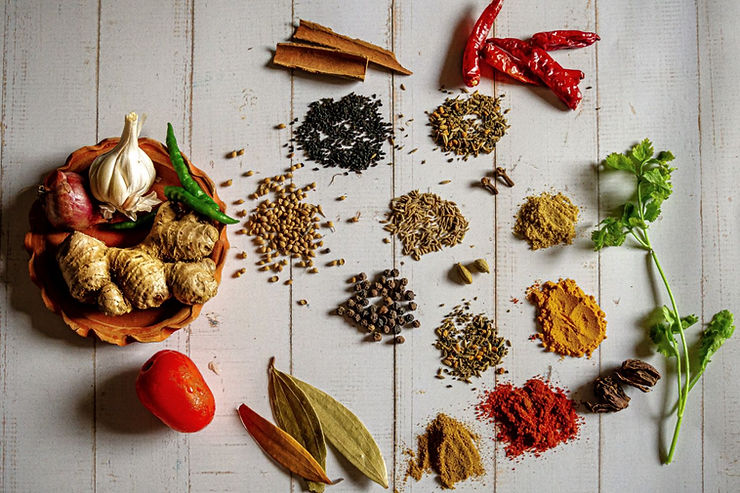The Must-Have Spices and Seasonings Singapore’s Top Chefs Swear By
- Chef TQ

- Jan 28, 2022
- 3 min read

Upgrade your kitchen arsenal with these chef-recommended ingredients
You don’t need to be a chef to know that spices and seasonings are vital elements in cooking. Whether you are preparing stews, pastas or roasts, a dash of black pepper, salt or dry spices can easily enhance the taste profile of the dish. Suffice to say, spices and seasonings are a chef’s best friend. So, we ask some of the island’s revered cuisiniers to share their kitchen essentials and where they get them. Don’t miss: 5 New Restaurants and Cafes to Book in Singapore for January 2022 1. Red Kampot Pepper and Mustard

Julien Mercier, executive chef, Claudine
“AOP red Kampot pepper—particularly those from our friend Norbert Binot from Kampot Jewels—is fragrant with floral and citrus notes, and it goes well with everything. I first discovered it on a trip to a pepper farm on the Cambodian coast a few kilometres away from Kampot, and I have been using it ever since.
We use it in our kampot pepper steak flambé as well as in our pepper mills at Claudine—it’s a must-have in my kitchen. You can purchase Kampot Jewels’ Kampot red pepper from Classic Fine Foods and Elite Fine Food.
Another must-have on my spice rack is mustard from Edmond Fallot. A dollop of mustard, a nice charcuterie and bread goes a long way. The spice notes that pierce through this nutty, creamy mustard pair extremely well with our charcuteries. You can purchase a variety of Edmond Fallot’s products from Gaston Burgundy Bistro.”
Don’t miss: Chef Julien Royer to Open New French Restaurant, Claudine, in Dempsey
2. Coriander Seeds, Fennel Seeds and Black Pepper

Louis Pacquelin, chef-owner, Clos Pasoh “Coriander seeds, fennel seeds and the Kampot black peppercorn are my kitchen essentials, especially when making stocks and jus. These bring a beautiful twist and freshness to any dish without being too overpowering. I love roasting coriander and fennel seeds in the oven before adding them to my dishes, as they provide a light nutty taste. I recommend purchasing freshly ground pepper rather than black pepper powder, as the latter tends to contain impurities. While these spices are easy to find in any grocery store and organic store, I like to purchase them from Terre Exotique and Kampot Jewels.” Read more: New Restaurant in Singapore: Clos Pasoh Serves French Fare in a Chic Setting
3. Fresh and Dry Asia Spices

Seow Tzi Qin, executive chef, Brewerkz
“My must-haves in the kitchen include a mix of fresh and dry Asian spices. Dry spices are cardamom, cinnamon, cloves and ancho chile powder, while fresh spices include bay leaves, jalapeno and poblano peppers. Every spice has a unique flavour profile and it’s my job as a chef to really bring that out. I generally bloom the spices whole, in a skillet with oil over low heat until they start to release their aromas. Whole spices should be added at the start of the cooking process as this helps to toast the spices and infuse their flavour into the cooking oil. I will then add powdered spices after sautéing the aromatics (vegetables and herbs) to enhance my dishes. Powdered spices tend to burn easily, thus the time to heat up should be relatively shorter. These should take place at the end of the spice paste before adding the protein. High-quality Asian spices can be found in many places in Singapore, such as the old school provision shops at Little India where you could handpick the finest spices or even Mustafa Centre at Rangoon Road. La Mexicana is another place which consolidates popular Mexican chilli peppers to spice up your cooking.”
4. Sea Salt

Jake Kowalewski, executive chef, Level 33
“Nothing elevates a dish better than good quality sea salt. My favourite would be Murray River pink salt from Australia, but you can purchase sea salt from any good whole food shops or a gourmet supermarket."



Comments